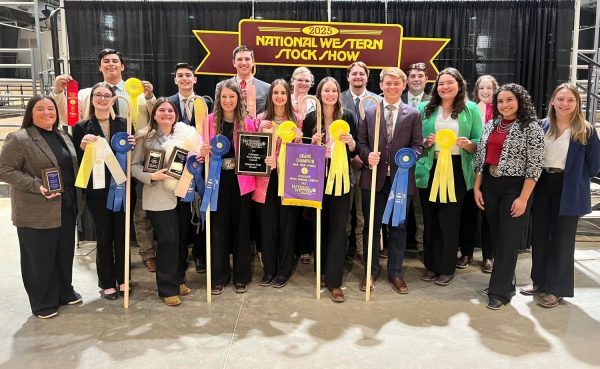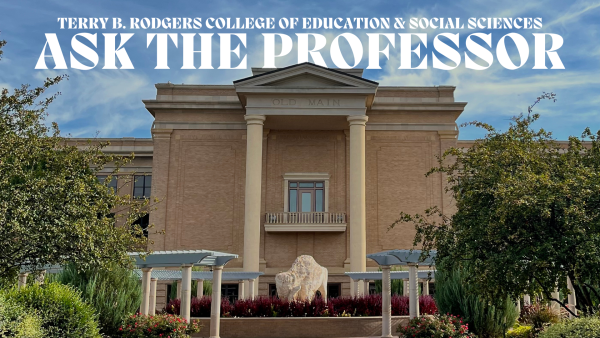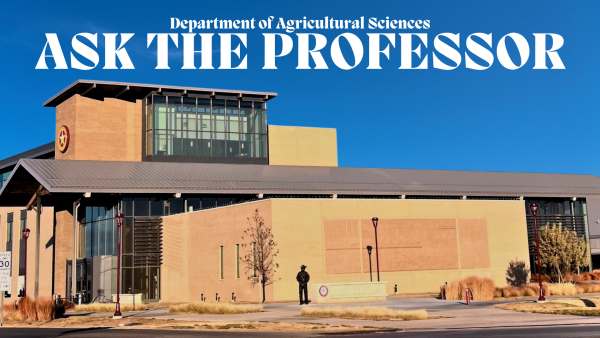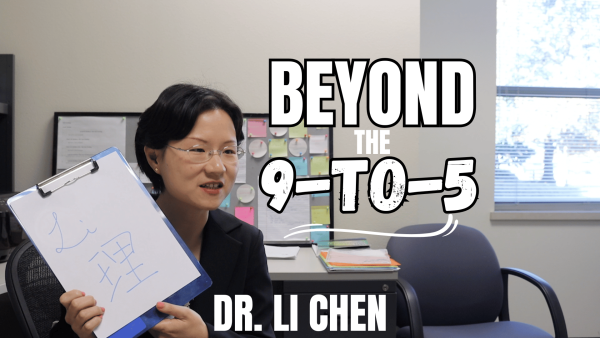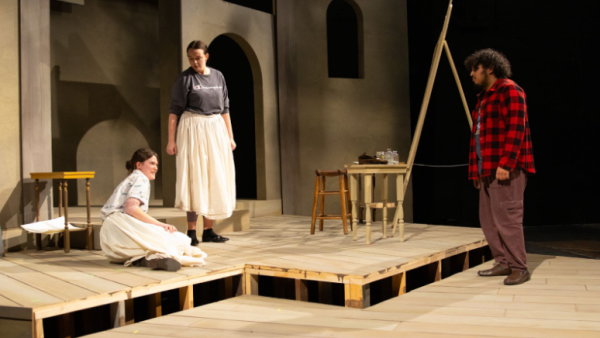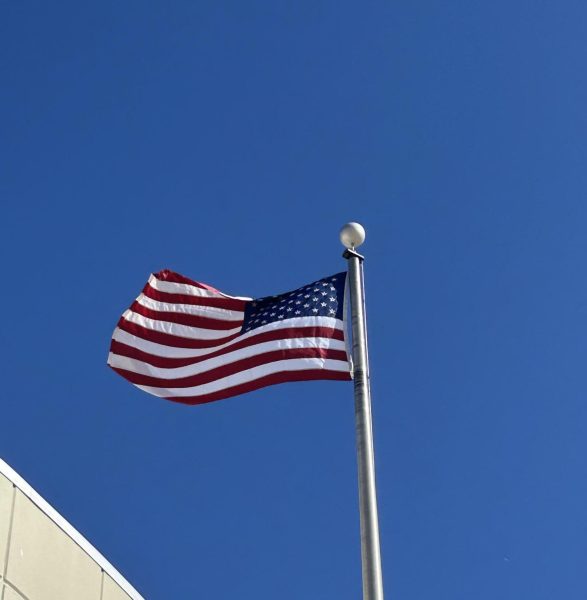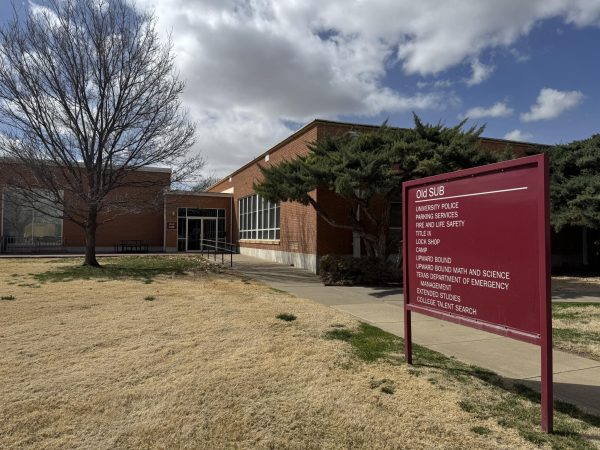Red Dead Redemption and the new west
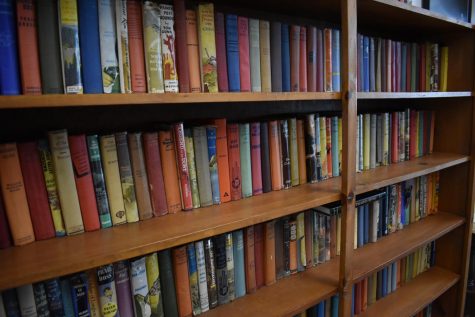
There are four bookshelves in the English, Philosophy and Modern Languages lounge that are completely stocked from end to end with books of western genre fiction. The titles, like “Two Gun Rio Kid”, “Lead Law” or “Gunsmoke Graze” leave little to the imagination as to what kind of stories await the reader behind the dime-novel cowboy painting on the cover. This particular image of the Wild West has not only made a visibly large impression on the authors and readers of “Riders of the Desert Trail” and “Saddle on a Cloud”, but on multiple generations of people, Americans and non-Americans alike.
But that vision of the American West may be changing. And one of the ways in which it could be changing is through the Red Dead Redemption video game series. The extent of this game’s impact on its players has been researched thoroughly by West Texas A&M University undergraduate students in collaboration with the Center for the Study of the American West.
Alex Hunt, professor of English and director of the CSAW, says that the idea to study Red Dead Redemption came from a conversation with someone, in which the game’s legacy was discussed.
“This person that I was talking to started telling me how big a thing this was going to be,” Hunt said. “The way that…John Wayne westerns were formative in forging how people understood the west for one generation, the next generation’s idea of the west would be formed through Red Dead Redemption. I thought that was a really intriguing claim, and I suppose it’s to some degree true.”
After acquiring a research grant, CSAW set up a gaming console in the Panhandle Plains Historical Museum, and created an exhibition of historic items from the museum’s collection that would have been seen in the time of the game. They encouraged people to play the game and think about the relationship between historical reality and the virtual one in front of them.
“How is this game representing history? How is it treating issues like violence, or gender, or whatever,” Hunt explained. “And as an English professor, too, I’m interested in storylines. What’s the story of redemption…and what can we learn from that, as far as the games popularity?”
Undergraduate students researched the musical score, the gender dynamics of the game, and the influence representation had on sales. Andrew Ryan, who graduated with a degree in Spanish from WTAMU, and who is the former CSAW intern and chair of the undergraduate research panel, looked at the representation of Mexican and Latino characters in the game.
“It came up pretty poorly,” Ryan said. “The representation’s not great. And similar things have been said about Native American representation in the second game…I think doing research projects like this,…it encourages our age group to look at things in sort of a critical way. Because I can almost guarantee that there are a bunch of people that play those video games and have fun because you’re, you know, going hunting, and doing train robberies, and this, that and the other. But to look a little bit past just that and see what else is there historically, culture wise.”
Artie Godinez, senior business management major, examined the food and the historical context and accuracy of the game’s cuisine, and how it plays a part in the story and how it fits into modern preconceptions of western frontier food.
“I think that if you look from the stance that video games are art, it is…like tearing open or tearing apart Shakespeare or any other…great novel,” Artie said. “It is still a piece of pop culture, it’s still a piece of entertainment…It wouldn’t be recognizable to us if it didn’t have all the…cowboy tropes. But it has a chance, if video games are art,…to go further than that. And to present…the real historical reality of the west.”
Paraphrasing Angus A.A. Mol from his paper The Interactive Past: Archaeology, Heritage & Video Games, Ryan said: “Video games are a place where the virtual meets reality. And, so the experiences that we have in video games are not just a game but influence the way that we perceive the world…But because it influences…our experiences it has more weight than just a game. So having…a historical video game should encourage a little bit of learning.”
As the popularity of the Red Dead Redemption series increases, and the idea of the American West is revisited, perhaps it will be put under heavier scrutiny and the tropes and themes that previous generations have accredited to the genre will diminish, leaving more room for historical accuracy and stories with a broader perspective.
“It definitely made me aware of the passive learning that happens in all of the experiences that we have in media; TV shows, movies, video games and otherwise,” Ryan said. “Our research was basically making that passive learning active.”
The possibility of WTAMU collaborating on a book with European scholars who are interested in the game and its influence has come up. The museum exhibit is down, but the research continues.
“It’s ongoing,” Hunt said. “I think it’s still kind of too new to determine what all we should learn from this yet.”
The students will be traveling to Albuquerque, NM soon to present their research at the annual Southwest Popular/American Culture Conference, which is unusual for undergraduates.
“I think it speaks very well of WT students,” Hunt said. “That they’re going and doing this and I’ll be very interested to hear of their experience.”



